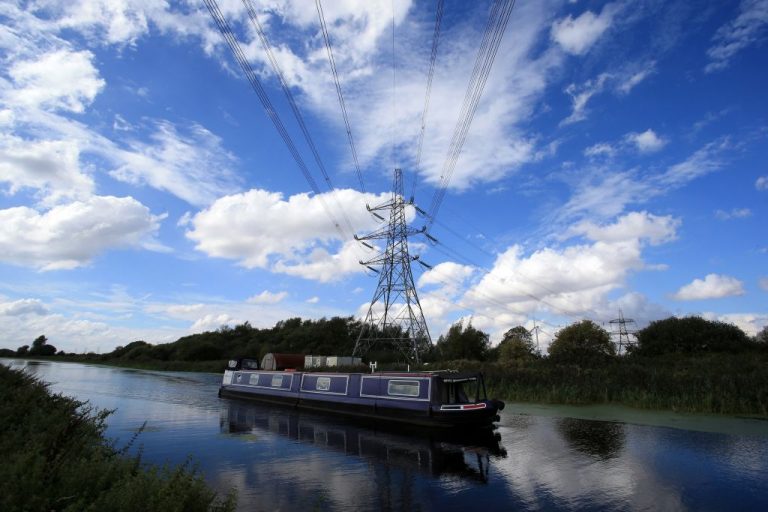If you’re starting to have flashbacks of how previously free and democratic societies quickly imported and embodied the notorious Chinese Communist Party’s operational methodology under COVID-19, your fears may have grounds.
As Europe faces an unprecedented energy crisis resulting, on the one hand, from economic sanctions against the Russian Federation for its invasion of Ukraine, and to widespread drought on the other, the question of how to make it through the winter with significantly reduced natural gas and electricity has been made to loom large.
Concerns of such a totalitarian repeat piqued on Sept. 7 after European Union President Ursula von der Leyen spoke to the press about how the continent’s energy crisis results from peak energy demand. The EU’s chief stated bluntly, “What we have to do is flatten the curve and avoid the peak demands.”
The exclamatory statement was predicated by, “I was just mentioning that we see there’s a global scarcity of energy. So whatever we do, one thing is for sure, we have to save electricity, but we have to save it in a smart way.”
Von der Leyen continued, “If you look at the costs of electricity, there are peak demands, and this is what is expensive because in these peak demands, the expensive gas comes into the market”
Success
You are now signed up for our newsletter
Success
Check your email to complete sign up
To the President’s credit, her statement is true. The State of California’s current energy crisis, rooted in a drought-causing historic heat wave caused by a curious high pressure heat dome that has seen several areas post all time high temperatures over 105 F, saw their grid be pushed to the point of blackouts on Sept. 7.
The State set a new all time high for peak power consumption of 52,061 megawatts. The figure eclipsed the 2021 high of 43,982 megawatts, and is more than double the Canadian record of 27,005 megawatts set in 2005.
The situation led to more than 60,000 homes losing power, making it the only region in America to endure significant power outages at the time.
Although von der Leyen’s frank, albeit inauspicious comments, went virtually uncovered by North American mainstream media, several conservative outlets, such as The Washington Times, did cover the story.
In its coverage, the outlet noted that the EU intends to tax energy companies for their “unexpected profits” from “low-energy sources” if prices rise above $200 per megawatt hour.
Germany posted $443 per megawatt hour on Sept. 7.
Von der Leyen proclaimed the tax would be used for social support, such as to “support vulnerable households and vulnerable communities,” the outlet stated.
The Guardian quoted the President as saying, “These revenues do not reflect their [energy companies’] production costs.” She added, “so it is now time for the consumers to benefit from the low costs of low-carbon sources.”
As for how much energy the European Union wants to force end users to cut, the website said that, based on “a leaked document seen by the Guardian,” that the Union’s governing body “wants a mandatory 5% reduction in electricity use in peak hours.”
So, what will energy crisis lockdowns look like in reality?
Consider that in May, Ireland was already preparing for how to play today’s looming crisis when it ran a wargame simulation based on a scenario where oil and gasoline shortages hit Europe hard, starting in the fall of 2022 and extending into the winter of 2023.
Proposed ways to handle society were to install sweeping COVID-style work from home lockdown orders while restricting gasoline sales to essential workers, controlled through selling only at select petrol stations.
And while that scenario may sound too dystopian to actually happen when heard by members of formerly free societies, consider that Sri Lanka, amid its recent bona fide and unprecedented economic collapse, did exactly this after the country could no longer purchase oil and gasoline because it ran out of foreign reserves.
Sri Lanka enforces their fuel rationing using a social credit QR-code vaccine passport-style app.
The looming threats to the regular human living condition are too far from a conspiracy theory.
On Sept. 7, the UK’s Daily Mail reported that Switzerland is considering legislation that will result in potential sentences of up to three years in prison for anyone who heats their home higher than 19C (66F) during a government-declared energy crisis.
Citing comments given to a Swiss media outlet by a spokesperson for the government’s Department of Finance, Daily Mail stated that the plan was to impose “fines on a daily basis” that “could start at 30 Swiss Francs ($31).” He added that “the maximum fine could be up to 3,000 Swiss Francs.”
Specifically, the plan was to enforce energy use limitations, such as, “Temperatures in gas-heated buildings can be no more than 19C, with water heated up to 60C (140F).” Additionally, the article stated that “radiant heaters would not be allowed and saunas and swimming pools would have to stay cold.”

















